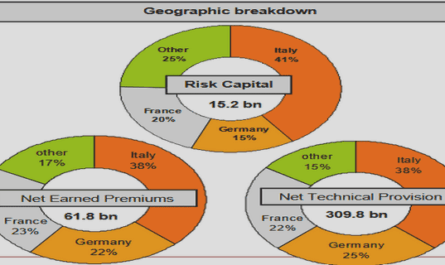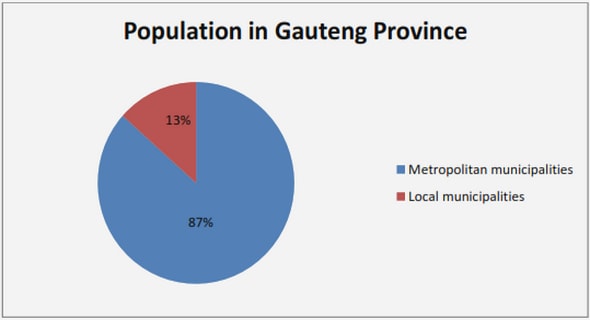Get Complete Project Material File(s) Now! »
The purpose and growth of the MBA
The MBA started off in the USA as an elite qualification for potential senior managers and leaders, in a world where improving business efficiency meant focussing on administrative procedures (Kedia and Harveston, 2002). Joseph Wharton, upon donating $100 000 as seed money to start Pennsylvania‟s Wharton School in 1881, was quite blunt about his vision that his funds should be used to educate young men from prominent families for careers10 in government and business11 (Benson, 2004).
Critique of the MBA
Despite the global stamp of approval on the MBA as the premier qualification for senior managers worldwide, there has been harsh criticism from B-school academia. Louw, Bosch & Venter (2001) reported that, with a proliferation of B-schools, there seemed to have been a lowering of standards to meet the apparently insatiable demand for MBAs. In some emerging markets, local institutions act as franchisees for foreign B-schools, with no guarantees that quality will be upheld locally.
MBA alignment directly recognised by business school faculty
Views from around the world are given in this section. From the UK. Laura Thyson, Dean of the London Business School, was quoted in the 18 September 2004 issue of the Straits Times as saying upon completing a survey of 100 business leaders from 20 countries, “The hard commercial reality is that business schools simply have to change. The corporate leaders produced an extensive list of the qualities they desire in future recruits, but almost none involved functional or technical knowledge. All their requirements can be summed up as follows – the need for more thoughtful, more aware, more sensitive, more flexible, more adaptive managers capable of being moulded and developed into global executives.
MBA alignment indirectly recognised by business school faculty
A 20-year perspective is given in this section of the evolution in B-school academics‟ thoughts on aligning the MBA with business. In 1987, Drucker commented on three observations, namely a) that there may be more managers outside business than inside, b) that society has become a construct of many organisations, of which business is only one such societal organisation, c) that, given the success of management, society is expecting more from management than simply generating profit. He concluded that the role of management has changed and that the interface between management and society would become the focus of management problems and research60 for the next 50 years.
A new philosophical awareness emerging
Drucker (1987) believed that there was as much „management‟ outside of business as inside business, if not more. He based this on his perception of society as increasingly a society of organisations, i.e., where the overwhelming majority of people derived their livelihood from being associated with organisations. Therefore, he argued, management had become the pervasive and universal instrument for society to deliver on its expectations, such as prosperity, safety and health. He believed that adding societal demands had not changed the work of management, but the meaning thereof: Management had become affected by public interest, and the consequences for management theory and management practice (and consequently also for the MBA curriculum) would constitute the management problems of the next 50 years.
TABLE OF CONTENTS :
- ABSTRACT
- AN OVERVIEW
- ACKNOWLEDGEMENTS
- LIST OF TABLES
- LIST OF FIGURES
- DEFINITIONS
- QUOTATIONS
- ABBREVIATIONS AND ACRONYMS
- PROLOGUE
- Chapter 1. CONTEXTUAL SETTING
- 1.1 Classic Social Contract Theory
- 1.2 The purpose and growth of the MBA
- 1.3 Historical deflection points in the evolution of the MBA
- 1.4 Future deflection points shaping a new world order
- 1.5 The research dilemma addressed by this thesis
- Chapter 2. REVIEW OF BUSINESS SCHOOL ACADEMICS‟ DISCOURSE
- 2.1 Critique of the MBA
- 2.2 Aligning the MBA with business needs
- 2.2.1 MBA alignment directly recognised by business school faculty
- 2.2.2 MBA alignment indirectly recognised by business school faculty
- 2.3 New trends and contexts for the MBA
- 2.3.1 A new philosophical awareness emerging
- 2.3.2 The changing business environment of B-schools
- 2.3.3 Global relevance and local contextualisation outside the USA
- 2.4 Strategic options for crafting a modern MBA
- 2.5 Doctoral research on the MBA
- 2.6 Learnings from history
- 2.7 A gap in the body of knowledge
- 2.8 Conclusions from the literature review
- 2.9 A trial run of Socrates‟ dialectic method of systematic inquiry
- Chapter 3. RESEARCH PROPOSAL
- Chapter 4. RESEARCH DESIGN AND METHODOLOGY
- 4.1 Introduction
- 4.2 An overview of the core research methodologies
- 4.2.1 Critical management research
- 4.2.2 Metasynthesis
- 4.3 Quality assurance towards academic rigour
- 4.4 Research Design
- Cascade Level A: Research entry level
- Cascade level B: Research contextualisation
- Cascade level C: Research design
- Cascade level D: Strategy of inquiry
- Cascade level E: Research methodology
- 4.5 Research Methodology
- Chapter 5. RESEARCH FINDINGS
- 5.1 Outcome of the metasynthesis phase
- 5.1.1 Research Step 1: The purpose of the critical metasynthesis
- 5.1.2 Research Step 2: Constructing the database
- 5.1.3 Research Step 3: Populating the database
- 5.1.4 Research Step 4: Hermeneutic and dialectic interpretations
- 5.1.5 Trustworthiness self-assessment
- 5.2 Outcome of the critical management research phase
- 5.2.1 Research Step 5: A new archaeology of knowledge
- 5.2.2 Research Step 6: A new genealogy of knowledge
- 5.2.3 Research Step 7: Transformative redefinition
- 5.1 Outcome of the metasynthesis phase
- Chapter 6. CONCLUSIONS
- Chapter 7. RECOMMENDATIONS
GET THE COMPLETE PROJECT
A SOCIAL CONTRACT WITH BUSINESS AS THE BASIS FOR A POSTMODERN MBA IN A WORLD ORDER OF INCLUSIVE GLOBALISATION – A CRITICAL METASYNTHESIS


